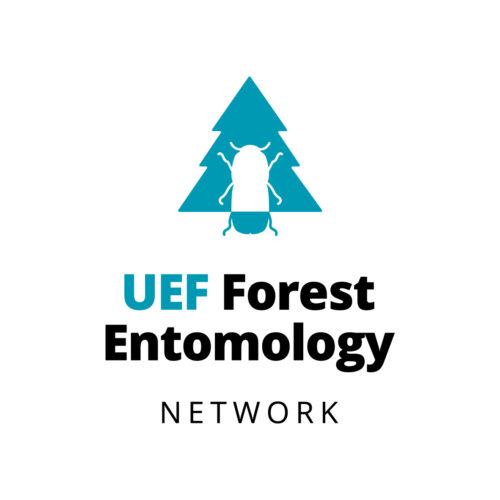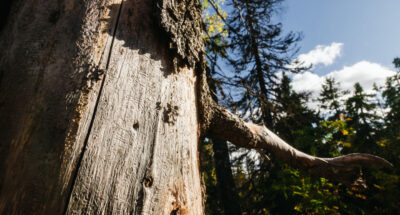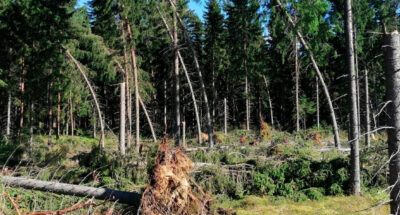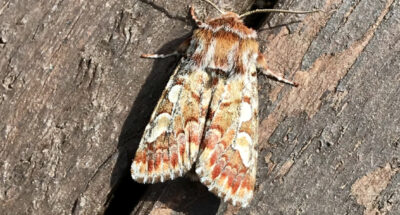
Forest Entomology Network
The objectives and research priorities of the network
Climate change is fundamentally altering our ecosystems, with Northern Europe experiencing particularly strong warming. Higher temperatures and more frequent droughts are affecting the distribution and abundance of animal populations, potentially damaging and killing trees. These increasingly frequent and severe disturbances in forests are altering ecosystem functions and causing challenges for silviculture, natural resource management, and the provision of ecosystem services.
The UEF Forest Entomology Network is a multidisciplinary group of researchers studying forest insects and developing new solutions to help society better prepare for and mitigate the harmful effects of climate change-induced disturbances in forests. Collaboration with other researchers is our key to success, so we work closely with several national and European academic institutions and research organizations to achieve our common goals.
The European Spruce Bark Beetle (Ips typographus) is at the top of our research agenda, but we are also interested in other forest insect species and forest health hazards, such as wind disturbances, defoliating moths and sawflies. We collaborate with institutions that have high level knowledge on remote sensing methods and utilize those in our research. Our staff also contributes to the education of future forest health professionals at the University of Eastern Finland, where several forestry students have completed their master’s theses under our guidance in recent years.
News
-
 Forest damage caused by global warming can be predicted
Forest damage caused by global warming can be predictedForest damage caused by global warming can be predicted
Lately, visitors to the Koli National Park have been met with a sight of dead trees in the nature reserve. Global warming is contributing to… -
 Norway spruce in Finland is susceptible to European spruce bark beetle damage especially in the vicinity of new clear-cuts
Norway spruce in Finland is susceptible to European spruce bark beetle damage especially in the vicinity of new clear-cutsNorway spruce in Finland is susceptible to European spruce bark beetle damage especially in the vicinity of new clear-cuts
In Finland, the European spruce bark beetle prefers mature Norway spruce forests close to recent clear-cut sites, a new study from the University of… -
 Climate change is pushing the pine beauty moth northward 50 years ahead of earlier predictions
Climate change is pushing the pine beauty moth northward 50 years ahead of earlier predictionsClimate change is pushing the pine beauty moth northward 50 years ahead of earlier predictions
In Finland, climate change is causing the pine pest Panolis flammea, or pine beauty moth, to shift its range northward 50 years ahead of predictions.
Cooperation
-
 Global Ecosystem Health Observatory (GEHO) 01.01.2024 -
Global Ecosystem Health Observatory (GEHO) 01.01.2024 - -
 Forest-Human-Machine Interplay - Building Resilience, Redefining Value Networks and Enabling Meaningful Experiences (UNITE) 01.07.2020 - 30.06.2028
Forest-Human-Machine Interplay - Building Resilience, Redefining Value Networks and Enabling Meaningful Experiences (UNITE) 01.07.2020 - 30.06.2028
Keywords
Professors
-

Samuli Junttila
Associate ProfessorSchool of Forest Sciences, Faculty of Science, Forestry and Technology -

Heli Peltola
ProfessorSchool of Forest Sciences, Faculty of Science, Forestry and Technology
Senior Researchers
-

Olli-Pekka Tikkanen
University LecturerSchool of Forest Sciences, Faculty of Science, Forestry and Technology -
Päivi Lyytikäinen-Saarenmaa
Visiting ResearcherSchool of Forest Sciences, Faculty of Science, Forestry and Technology
Doctoral Researchers
-

Mikko Pelto-Arvo
Doctoral ResearcherSchool of Forest Sciences, Faculty of Science, Forestry and Technology -

Diana Simon
Doctoral ResearcherSchool of Forest Sciences, Faculty of Science, Forestry and Technology -

John Pulgarin Diaz
Doctoral ResearcherSchool of Forest Sciences, Faculty of Science, Forestry and Technology -
Reetta Kangaslampi
Doctoral ResearcherSchool of Forest Sciences, Faculty of Science, Forestry and Technology

